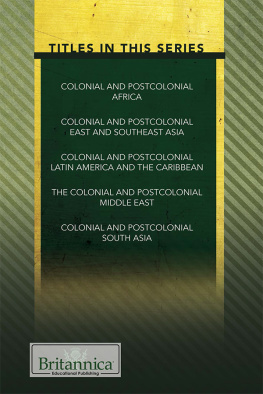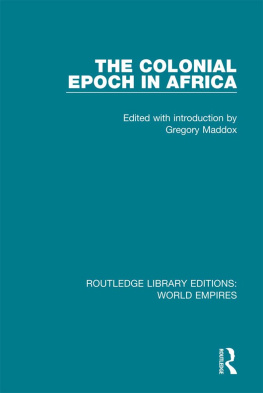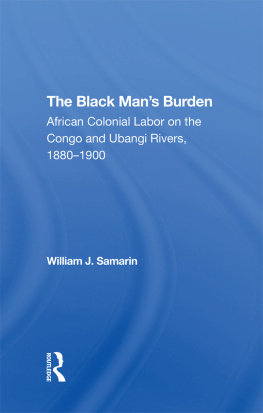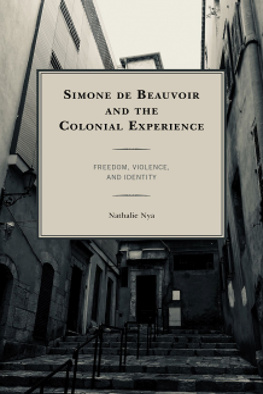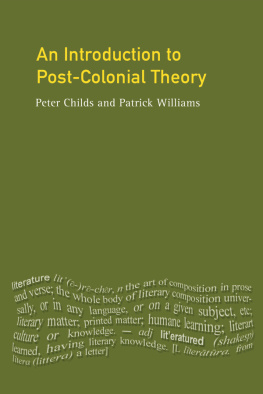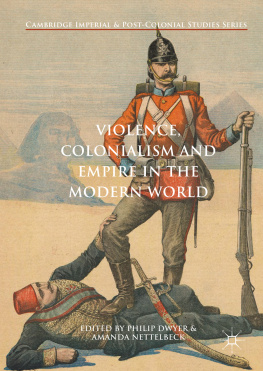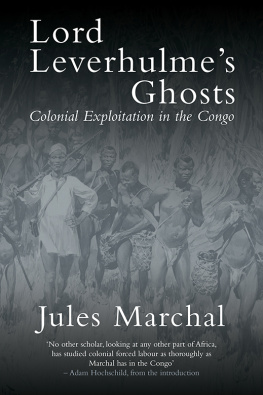Abbreviations
AAB:
African Archives, Ministry of Foreign Affairs, Brussels.
ABIR:
Anglo-Belgian India Rubber Company.
ABP:
Archives of the Bandundu Province.
AIMO:
Affaires indignes main doeuvre.
CK:
Compagnie du Kasa.
GG:
Gouverneur-gnral du Congo belge.
HCB:
Huileries du Congo Belge.
INEAC:
Institut National pour lEtude Agronomique du Congo belge.
JAK:
Archives of the Jesuit Province of Central Africa, Kinshasa.
MOI:
Main doeuvre indigne.
PLC:
Plantations Lever au Congo.
PLZ:
Plantations Lever au Zare.
REPCO:
Rgie des Plantations au Congo belge.
RMCA:
Royal Museum for Central Africa.
UA:
Unilever Archives, Port Sunlight.
UMHK:
Union Minire du Haut-Katanga.
Acknowledgements
This book was inspired by my doctoral research at Universit Saint-Louis in Brussels under the umbrella of the IAP BeJust 2.0 research project and financed by the Belgian Federal Scientific Policy. I would like to thank my thesis supervisor, Nathalie Tousignant, for her mentoring, friendship, and continuous support. She was the first to introduce me to the fascinating history of Congo and colonialism during my second year of study. In the process of designing my study plan, Nathalie constantly encouraged me to go off the beaten path; to investigate new sources; and to critically approach my archives. I would have been another researcherand perhaps not even a researcher at allshould I not have the chance to meet her.
I would also like to express my gratitude to the members of my doctoral jury: Alexander Keese, Thomas Hendriks, Pedro Monaville and Pierre-Olivier de Broux. They allocated a significant portion of their precious time to helping me improve my work. Their advice, suggestions, and expertise have profoundly helped me refine my analytical framework and improve my research techniques, both in the archives and in the field. Our paths have continued to cross since then, and I hope we will remain in touch for decades to come. I also have to mention how indebted I am to Thomas for his kindness; for the sharpness of his conceptual mind; and for suggesting that I work around the concept of colonial impotence. As it turned out, I took his advice very seriously!
Countless other people have helped me bring this research to fruition. Many thanks to Pierre Dandoy and Rafael Storme (African archives, Federal Public Service Foreign Affairs, Brussels); Joanne Ruff (Unilever archives, Port Sunlight); and Father Jan Evers (Jesuit archives, Kinshasa), who helped me find my way through the intricate paper trails of colonial institutions. I was also fortunate to be able to count on the support and help of friends and colleagues during my field work in the Kwilu. I am particularly indebted to Katrien Pype, for sharing her time and experiences with me, and for giving me the chance to find a family and a home in Kikwit. I am honoured to count someone as knowledgeable, warm and charming as she among my friends. Thanks also to Pierre Clinquart, Clara Devlieger, Jacob Koster, Emery Kalema, Renzo Martens, Trisha Phippard and Kiangu Sindani for their support and advice and for accommodating me. I am endlessly grateful to the Mbwabala family, Bertine, Nol, Hritier, Florence and Winner, for welcoming me into their home and for taking care of me. Above all, I would like to thank Jean-Claude Lufungula, without whom this fieldwork would not have been possible. Jean-Claude devoted entire weeks to my research and drove his motorbike on hundreds of kilometres of asphalt roads and dusty trails for us to meet the remaining witnesses of Leverville. I am also indebted to his tireless and excellent translation work. Finally, I wish want to thank all of those who were willing to share their memories with perfect strangers and who helped me get a clearer picture of what the concession experience could mean for those who lived through it.


